Politics
Trump’s push for risky malaria drugs disrupts coronavirus response

[ad_1]

“It’s not the right thing to do, in the middle of a pandemic, to throw the kitchen sink — even guided by Oracle — at patients,” said Arthur Caplan, a bioethicist at NYU.
Scientists are trying to answer some of the gaping questions about chloroquine: The World Health Organization is launching a global trial of the drug and other potential treatments, while New York state is enrolling patients in its own study this week.
“Using untested medicines without the right evidence will raise false hope and even do more harm than good — and cause a shortage of essential medicines that are needed to treat other diseases,” said Tedros Adhanom Ghebreyesus, director-general of the World Health Organization.
But in the U.S., where Trump has taken to touting chloroquine’s “very powerful” abilities in press conferences, the president and Vice President Mike Pence are encouraging off-label use since the medicine is already approved for certain conditions. While that means doctors can prescribe it to their patients, they are not required to report harmful side effects or even if the drug was effective.
Health experts warn that the confusion will have tragic effects. An Arizona man died after ingesting chloroquine phosphate, a treatment for sick fish, believing it was the drug Trump referenced. “I saw it sitting on the back shelf and thought, ‘Hey, isn’t that the stuff they’re talking about on TV?’” his wife told NBC News. “Trump kept saying it was basically pretty much a cure.”
Meanwhile state health officials are concerned that hydroxychloroquine supplies could run low for lupus and arthritis patients who have used the drug for years. For example, Virginia’s Department of Health urged doctors on Wednesday to stick to prescriptions “consistent with the evidence for its use.”
FDA is working with federal officials and academic centers to collect data on hydroxychloroquine and a range of therapies, spokesperson Michael Felberbaum told POLITICO. But policy experts are increasingly worried that with senior officials like Pence encouraging off-label use rather than trials, more harm will come.
Meanwhile meetings to set up the Oracle database are happening daily with administration health officials, Agus said. Amy Abernethy, the FDA principal deputy commissioner brought on from health records company Flatiron in part to incorporate more real-world data and technology into the agency, has been heavily involved in the effort, he said. A senior HHS official said Abernethy has been involved in a range of data-collection projects around coronavirus but that there have been concerns that the chloroquine effort was getting “outsized attention.”
And as health officials race to create a tracking system for the drugs, the president continues to tout them as a potential cure-all.
“I don’t think anybody is taking literally what he is saying about the drugs, but he is creating discourse — and that’s what I like,” said Agus.
There is a “desperate effort” across the globe for an answer, said WHO’s chief scientist Soumya Swaminathan. “This is leading to large scale use of these drugs — chloroquine, for example — [when] we have no knowledge that it is going to benefit anyone.”
The president initially invoked chloroquine during a press briefing last week where he promised that FDA would open the doors to use of promising drugs. Interest in chloroquine has risen quickly in the research community: Scientists in Wuhan, China, suggested in February that it could be helpful after weeks of use against their severe outbreak. A few weeks later, a group of researchers in France published data from a small preliminary study — although some have since questioned the research, noting peer review was done within one day and that the lead researcher has been accused of fraud before. Later, a Chinese study published in The Lancet suggested no benefit from the pills.
The drug’s popularity exploded online, touted by a mix of venture capitalists and questionable personalities. Bitcoin investor Gregory Rigano posted a Google document championing the medicine — amplified by prominent voices like Elon Musk, who shared it with his 32 million Twitter followers — and appeared on Fox News to tout it as a “cure” with host Tucker Carlson.
Health researchers immediately raised questions about Rigano’s claims, and Stanford University said that he had no affiliation there and no one and the university was involved in his paper. But within a day of Rigano’s appearance on Carlson’s show, Trump was calling chloroquine “very powerful” in his daily White House briefing.
“The nice part is it’s been around for a long time, so we know that if things don’t go as planned, it’s not going to kill anybody,” the president said.
Standing next to Trump at the briefing, FDA Commissioner Stephen Hahn and top infectious disease expert Anthony Fauci appeared to temper Trump’s expectations for the malaria medicines.
“We need to make sure the sea of new treatments will get the right drug to the right patients, at the right dosage, at the right time,” Hahn said last week. “That’s why it is important we have our professionals looking at these therapeutic developments.”
Fauci drew a clear line the next day, even as the president pushed back. “You have to be careful when you say ‘fairly effective.’ It was never done in a clinical trial. It was given to individuals who felt that maybe it worked.”
“I’m a smart guy. I feel good about it,” Trump said. “Let’s see what happens. We have nothing to lose.”
But even the pharmaceutical companies behind chloroquine — several of which have already donated millions of pills to the U.S. government — are wary of simply prescribing their medicines to people who want them.
German drugmaker Bayer, which holds the original chloroquine patent, was the first to get involved when Chinese officials approached the company as that nation’s outbreak raged in early February. The experience provided lessons for how to use the drug, said Matthias Berninger, a Bayer public affairs executive, like that it works best when given to people soon after infection, rather than waiting until they’re hospitalized in an intensive care unit and forced to use a respirator.
Now New York, with 60 percent of new U.S. coronavirus infections, is the emerging front line of the pandemic. Bayer has donated three million pills to the federal government, confident from its experience in China that the drug could push down the number of people who need to go to the hospital — so long as it goes to the right patients.
“The scientists on the front lines and standing by the president have an important role in making sure that there is a coordinated therapeutic strategy,” he said. But if there are too many off-label prescriptions, “the people who need it the most won’t get it.”
Public health experts continue to warn against pinning hopes on one or two unproven medicines. “For coronavirus, I’m doubtful that the solution to this pandemic is going to be a new drug,” said Richard Besser, who was acting CDC director during the 2009 swine flu outbreak. “It’s great to have hope. I like to under-promise and, hopefully, over-deliver.”
“The real problems are not trying to find a magic bullet,” said bioethicist Caplan, whose university in New York City is now surrounded by the outbreak. “I wish the administration would figure out how to get equipment and protective gear to places where the outbreak is the worst. If we had testing, it would do far more than figuring out whether this malaria drug can kill the coronavirus.”
[ad_2]
Source link
Politics
Trump’s Bold Move: Dan Bongino for Secret Service Director? The Inside Scoop on Security and Threats!
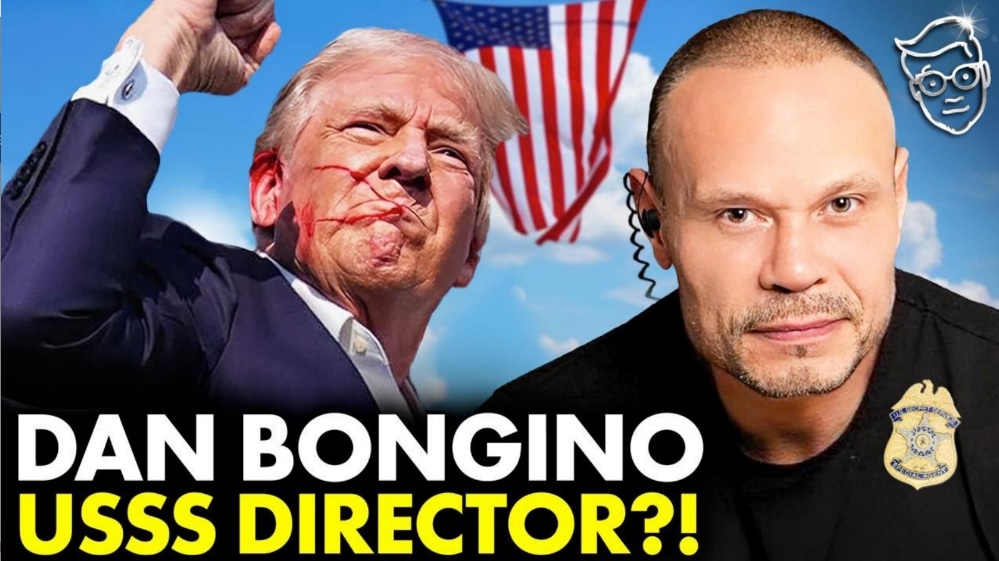
Donald Trump is reportedly eyeing Dan Bongino, a former Secret Service agent turned media powerhouse, to lead the Secret Service if re-elected. Known for his no-nonsense approach and deep insights into national security, Bongino’s potential appointment has ignited conversations about a tougher stance on protective measures for U.S. leaders.
What This Means for National Security:
- Bongino’s Unique Background: With years of experience in high-stakes security operations, Bongino’s return could lead to heightened defenses and a streamlined Secret Service.
- A Message on Security: Trump’s choice of Bongino signals a commitment to stronger protection protocols amid rising security threats.
- The “Truth About Assassination”: Bongino’s frank discussions on assassination plots and security vulnerabilities bring transparency and a clear message: safety is the top priority.
This development is not just about a change in leadership—it’s a shift towards a new era in protective services. Could this be the key to reinforcing the security of American leaders?
Politics
Former Disney and Pixar Designer Sentenced to 25 Years for Child Exploitation and Human Trafficking
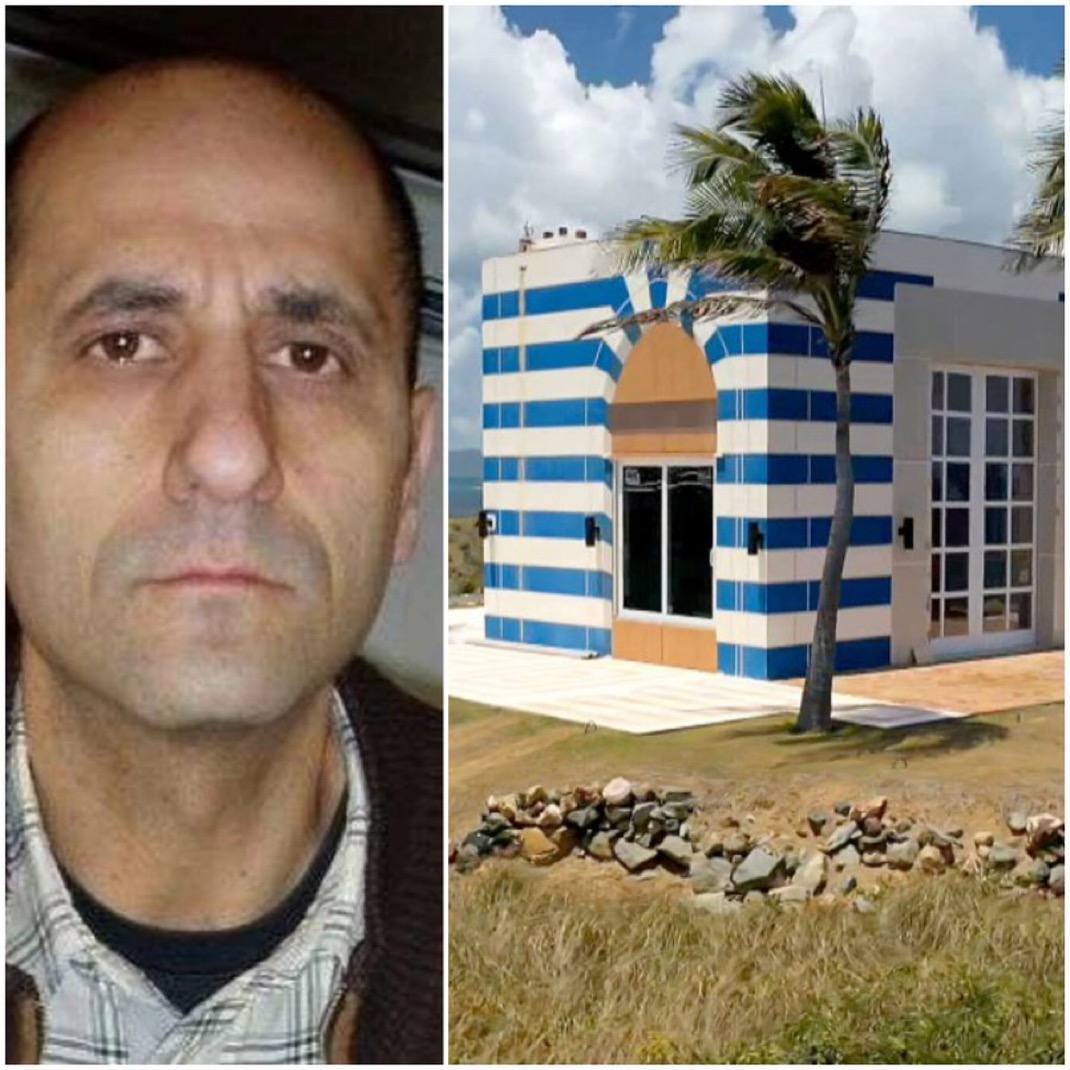
This is a deeply distressing case involving Bolhem Bouchiba, a former graphic designer with a history of work on high-profile animated films. He has been convicted by a French court on grave charges, including pedophilia, complicity in child abuse, and human trafficking, leading to a 25-year prison sentence. The court heard evidence that Bouchiba orchestrated and watched the abuse of young children, some as young as five, over nearly a decade.
This case underscores the importance of international cooperation in fighting human trafficking and child exploitation. The conviction brings justice to the victims and serves as a strong reminder of the critical need for vigilance and stringent measures to protect vulnerable individuals globally.
Politics
FEMA Staff Accused of Withholding Aid from Trump Supporters After Hurricane – Calls for Hate Crime Charges and Jail Time Emerge
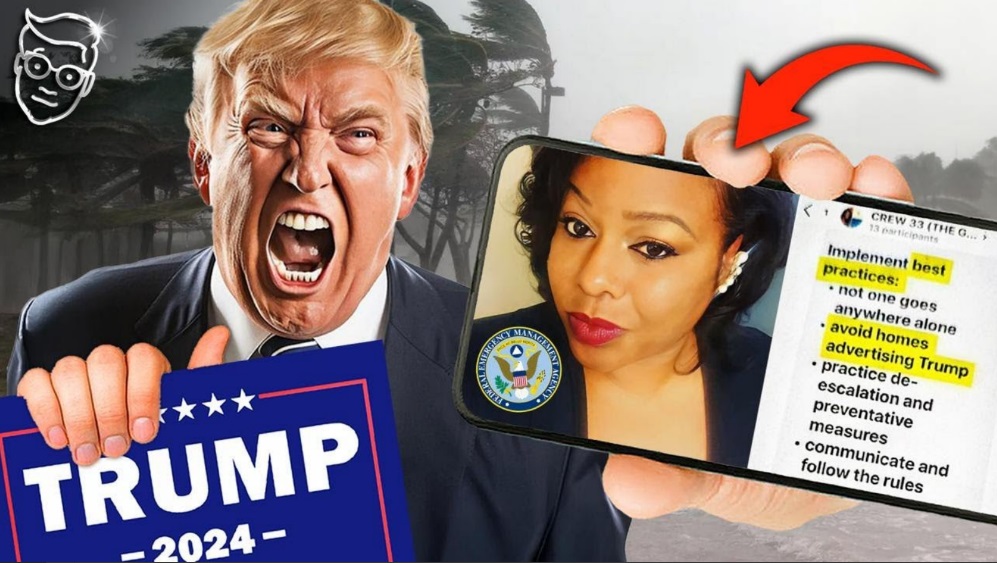
A shocking report claims that FEMA staff refused to provide essential aid to Trump supporters in the aftermath of a devastating hurricane. Outrage is mounting, with many calling for these actions to be investigated as a hate crime. If true, the implications are severe, with demands for accountability, including possible jail time for those involved.
Key Points of the Story:
- Discrimination Allegations: Reports suggest that aid was selectively withheld based on political affiliation, sparking intense backlash and accusations of biased treatment.
- Legal and Social Implications: Calls for hate crime charges highlight the potential legal consequences and bring attention to political bias in disaster response.
- Public Outcry: Citizens are rallying for justice, emphasizing the importance of fair treatment regardless of political beliefs.
Will this lead to a major investigation into FEMA’s actions, and could hate crime charges be brought forward? Follow this developing story as more details come to light.
-
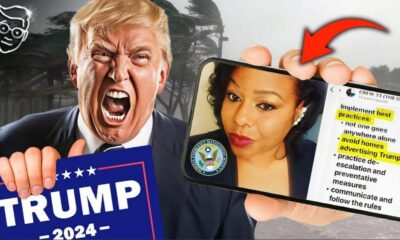
 Politics5 months ago
Politics5 months agoFEMA Staff Accused of Withholding Aid from Trump Supporters After Hurricane – Calls for Hate Crime Charges and Jail Time Emerge
-

 Entertainment5 months ago
Entertainment5 months agoGeorge Clooney’s Final Stand: Hollywood Icon QUITS Politics for Good After Kamala Harris’ Slip and Trump Triumph
-

 Politics1 year ago
Politics1 year agoTucker and President Trump explore Bedminster and talk about “America’s favorite sport” and what happens if you misbehave at Bedminster
-
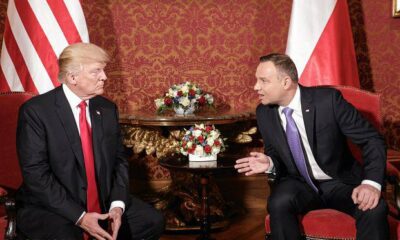
 Politics5 months ago
Politics5 months agoPolish President Andrzej Duda Reportedly Visits Mar-a-Lago to Meet with Donald Trump
-

 Politics1 year ago
Politics1 year agoEXPOSED: JOE BIDEN TRAGEDY ADULT VIDEO PUBLISHED BY TUCKER!
-

 Politics5 months ago
Politics5 months agoTrump’s Bold Move: Dan Bongino for Secret Service Director? The Inside Scoop on Security and Threats!
-

 Politics5 months ago
Politics5 months agoFormer Disney and Pixar Designer Sentenced to 25 Years for Child Exploitation and Human Trafficking
-

 Politics5 months ago
Politics5 months agoTrump’s Bold Move: Appoints Hardline Border Czar to Launch Mass Deportations – “Kamala, You’re FIRED!
-
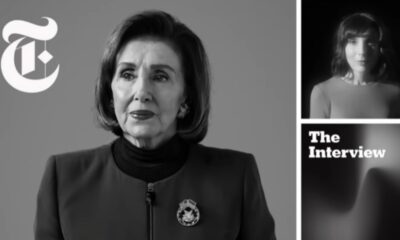
 Politics5 months ago
Politics5 months agoMSNBC in Flames! Pelosi Blames Biden for Kamala Endorsement—A Turning Point for the Democratic Party?






